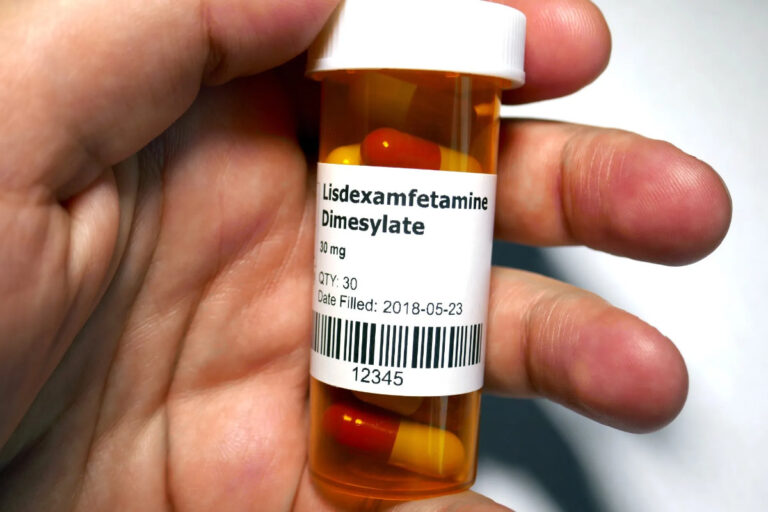Enhancing Focus and Productivity: Flmodafinil Compared to Modafinil
In today’s productivity-focused society, cognitive enhancers are gaining significant traction among professionals, students, and biohackers. Two compounds at the forefront of this movement are Modafinil, a prescription medication used for treating sleep disorders, and Flmodafinil, a newer analog known for its stimulating properties and accessibility through online nootropic markets.
What Is Modafinil?
Modafinil (brand name: Provigil®) is a wakefulness-promoting agent approved by the U.S. Food and Drug Administration (FDA) for treating conditions such as narcolepsy, obstructive sleep apnea, and shift work sleep disorder. It works by enhancing dopamine signaling through inhibition of the dopamine transporter, although its precise mechanism of action remains partially unclear (FDA, 2007).
Modafinil has been shown to improve alertness, reduce fatigue, and support sustained attention. Its off-label use among healthy individuals as a cognitive enhancer has grown rapidly, despite limited long-term safety data for this population (Dowling et al., 2016).
What Is Flmodafinil?
Flmodafinil, also known by its research name CRL-40,940, is a bisfluoro analog of Modafinil. It is structurally similar but contains two fluorine atoms on its phenyl rings, which may increase its lipophilicity and potentially alter its absorption and potency (Dowling et al., 2016).
Unlike Modafinil, Flmodafinil is not approved by the FDA and is sold primarily through online nootropic suppliers. It is often marketed as a more potent and longer-lasting alternative to Modafinil, though comprehensive human trials are lacking. In a forensic study, Flmodafinil was identified alongside similar analogs such as Adrafinil and CRL-40,941 in cognitive enhancement supplements (Bakota & Nandrea, 2025).
Key Differences Between Flmodafinil and Modafinil
1. Legal Status
Modafinil is a Schedule IV controlled substance in the U.S., available by prescription only. Flmodafinil, on the other hand, is unscheduled and not approved for any medical use, though it is widely sold online. This “gray area” status makes it accessible but not necessarily safe or regulated (Bakota & Nandrea, 2025).
2. Potency and Onset
Anecdotal reports suggest that Flmodafinil may have a faster onset and longer duration of action compared to Modafinil. This may be due to its increased lipophilicity, although these claims are not yet substantiated by controlled clinical studies (Dowling et al., 2016).
3. Mechanism of Action
While both drugs appear to act as dopamine reuptake inhibitors, the specific pharmacological differences between Modafinil and Flmodafinil have not been fully elucidated. The FDA labeling for Modafinil indicates that it increases extracellular dopamine levels and promotes wakefulness in a dopamine-transporter-dependent manner (FDA, 2007).
Flmodafinil is presumed to act similarly but lacks the extensive clinical documentation that supports Modafinil’s mechanism and safety.
Usage Trends in the Nootropic Community
In a 2020 study of cognitive enhancers discussed on psychonaut forums, Flmodafinil was identified among 142 substances frequently mentioned online as performance-enhancing agents. The study found that nootropics like Flmodafinil were increasingly popular among healthy individuals seeking to boost focus and productivity (Napoletano et al., 2020).
This trend reflects growing demand for unregulated compounds that promise mental edge without the legal or logistical barriers of prescription medications.
Safety and Side Effects
Modafinil’s safety profile is well documented, with known side effects including headache, nausea, insomnia, and anxiety. It also carries a risk of drug interactions due to its effects on cytochrome P450 enzymes (FDA, 2007).
In contrast, Flmodafinil lacks large-scale clinical trials, so its long-term safety remains unknown. There are concerns about unregulated use, possible dependence, and variability in product purity among vendors (Bakota & Nandrea, 2025).
Conclusion: Should You Choose Flmodafinil or Modafinil?
If you are looking for a medically vetted, prescription-based cognitive enhancer, Modafinil remains the more reliable choice due to its regulatory approval, clinical studies, and known safety profile.
However, if accessibility and potency are prioritized — and one is willing to accept greater risk — Flmodafinil may offer advantages in duration and availability. Still, this comes at the cost of unknowns around long-term effects, legal ambiguity, and ethical considerations.
As with any cognitive enhancer, it is critical to make informed decisions grounded in science — not hype.
References
- U.S. Food and Drug Administration. (2007). PROVIGIL® (modafinil) tablets [prescribing information]. U.S. Department of Health and Human Services. Retrieved from https://www.accessdata.fda.gov/drugsatfda_docs/label/2007/020717s020s013s018lbl.pdf
- Dowling, G., Kavanagh, P. V., Talbot, B., O’Brien, J., Hessman, G., McLaughlin, G., Twamley, B., & Brandt, S. D. (2017). Outsmarted by nootropics? An investigation into the thermal degradation of modafinil, modafinic acid, adrafinil, CRL-40,940 and CRL-40,941 in the GC injector: Formation of 1,1,2,2-tetraphenylethane and its tetra fluoro analog. Drug Testing and Analysis, 9(3), 518–528. https://doi.org/10.1002/dta.2142
- Napoletano, F., Schifano, F., Corkery, J. M., Guirguis, A., Arillotta, D., Zangani, C., & Vento, A. (2020). The Psychonauts’ World of Cognitive Enhancers. Frontiers in Psychiatry, 11, 546796. https://doi.org/10.3389/fpsyt.2020.546796
- Bakota, E. L., & Nandrea, J. M. (2025). Development and validation of an analytical method to identify and quantitate novel modafinil analogs in products marketed as dietary supplements. Journal of Dietary Supplements, 22(2), 329–344. https://doi.org/10.1080/19390211.2024.2417673








